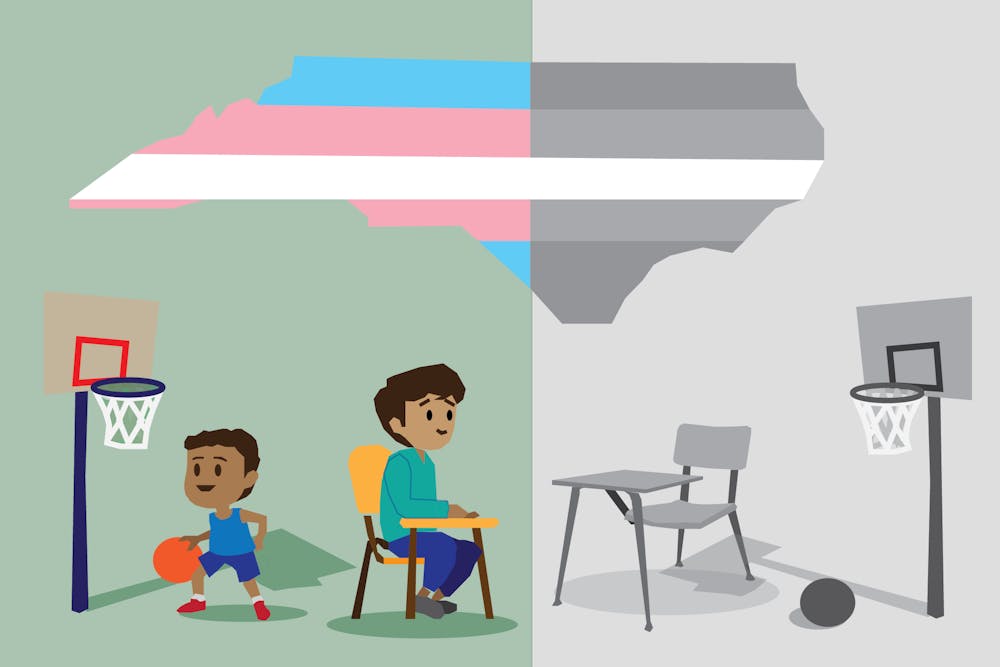In August 2023, Wren Motley, a sophomore at Longleaf School of the Arts in Raleigh, was looking into options for gender-affirming care, including top surgery. Around that time, the North Carolina General Assembly passed House Bill 808, which prevents health care providers from giving minors gender-affirming care such as puberty blockers, hormones and surgeries.
For Motley, this was demotivating.
“Some of the few things that I can actually change about myself to make me feel more comfortable in my body are being taken away,” they said.
Also in August 2023, the General Assembly passed two other laws, restricting the discussion of gender identity in school with Senate Bill 49 and banning transgender youth from participating in women’s sports with House Bill 574. Although Gov. Roy Cooper vetoed all three bills, the General Assembly's Republican supermajority overrode the vetoes.
Over a year later, transgender and nonbinary students, parents and advocates across North Carolina say youth and their families are feeling the impacts of the laws.
During the 2023 legislative session, Republican lawmakers who supported the bills emphasized they were meant to protect children and parents' rights. Lou Jent, a nonbinary parent of a nonbinary child who lives in Durham, said all three laws take rights and choices away from transgender youth and their families.
Artie Hartsell, director of organizing at the American Civil Liberties Union of North Carolina, said the restriction of hormone blockers is particularly harmful to minors starting puberty.
Since the medications put a pause on the effects of puberty, Hartsell said the blockers allow transgender youth more time to figure out their identity before going through permanent developmental changes.
S.B. 49, known as the Parents' Bill of Rights, requires schools to notify parents if a student asks to use a different name or pronoun, which Hartsell said can be a safety concern if the student is not out to their parents. They also said the laws impact student-teacher relations by driving students away from trusted adults.



